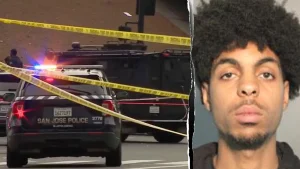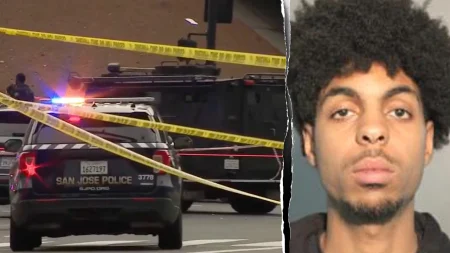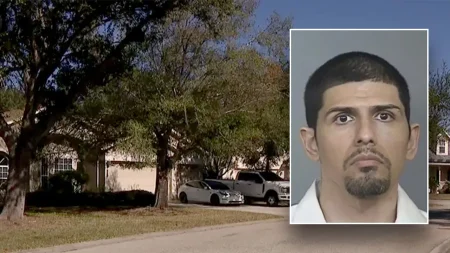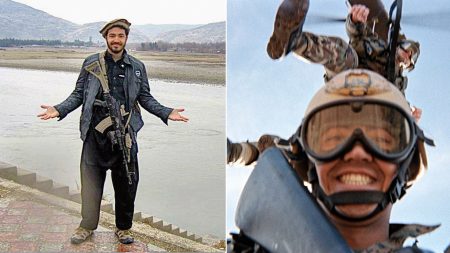Understanding Tyler Robinson: A Portrait Beyond the Headlines
Tyler Robinson, the individual accused of shooting conservative activist Charlie Kirk, had a life shaped by academic excellence, familial political influence, and vocational aspirations before his name became associated with violence. Growing up in Southwest Utah, Robinson emerged from a Republican household where political values were likely part of his upbringing and everyday conversations. His high school years were marked by exceptional academic performance, painting a picture of a young man with intellectual capabilities and educational promise. During this formative period, Robinson demonstrated the discipline and focus typically associated with successful students, giving little indication of the troubling actions he would later be accused of committing. As he transitioned into adulthood, Robinson pursued practical career development, training to become an electrician—a skilled trade requiring technical knowledge, attention to detail, and adherence to safety protocols.
The contrast between Robinson’s apparently conventional background and the shocking allegations against him raises profound questions about the complex nature of human behavior and the sometimes hidden progression toward violence. His Republican upbringing in Southwest Utah—a region known for its conservative values and tight-knit communities—offers an unexpected backdrop to the charges he now faces. This geographic and political context makes the accusations particularly jarring, as they appear to represent actions taken against someone whose ideological position might have aligned with aspects of Robinson’s own familial political environment. The dissonance between his upbringing and alleged actions invites deeper examination of how an individual’s relationship with political identity can evolve in unexpected and potentially volatile ways, even when that individual comes from a household where specific political values were presumably modeled and encouraged.
Robinson’s academic excellence during his high school years suggests a young person who had developed the capacity for focused study, critical thinking, and achievement within structured environments. These qualities typically indicate someone with future potential and the ability to navigate social institutions successfully. His choice to pursue training as an electrician reflects a practical career path with clear economic prospects and the opportunity to master a skilled trade valued in communities across America. This vocational direction indicates someone planning for a sustainable future within conventional societal frameworks, making the alleged violent deviation from this path all the more perplexing to those who knew him or shared similar backgrounds. The apparent contradiction between his promising start and the serious criminal allegations he now faces exemplifies how human trajectories can take unexpected turns that defy simple explanation or prediction.
The story of Tyler Robinson serves as a sobering reminder that violent actions can emerge from seemingly ordinary backgrounds, challenging our assumptions about who might be capable of such behavior. While we naturally search for clear warning signs or dramatic backstories to explain shocking incidents, the reality is often more complicated and unsettling. Robinson’s case illustrates that conventional markers of stability—academic success, vocational training, and a politically engaged family environment—do not necessarily provide immunity from the influences or circumstances that might lead someone toward violence. Without simplifying or excusing the gravity of the accusations against him, understanding the full complexity of Robinson’s journey from promising student to alleged shooter requires acknowledging that human behavior is shaped by countless visible and invisible factors beyond the basic biographical details available to the public.
For communities grappling with the shock of violence, particularly politically motivated violence, cases like Robinson’s present difficult questions about the intersection of personal responsibility, political rhetoric, and social influence. His alleged targeting of Charlie Kirk, a prominent conservative figure, creates a particularly complicated narrative given Robinson’s upbringing in a Republican household. This apparent contradiction challenges simplistic narratives about political violence and its motivations, suggesting that the relationship between one’s political upbringing and later actions may involve complex psychological processes including rebellion, radicalization, or fundamental shifts in worldview. The transformation from a young person raised with specific political values to someone allegedly willing to commit violence against a figure potentially aligned with those same values represents a profound and troubling journey that deserves careful consideration beyond partisan frameworks.
As society continues to navigate an era of heightened political tensions and polarization, Robinson’s case serves as a reminder that the human factors behind political violence remain stubbornly complex and resistant to easy categorization. While headlines naturally focus on the alleged act itself, a more complete understanding requires acknowledging the multidimensional nature of human development—from the formative influence of Southwest Utah’s cultural landscape to the academic potential displayed in Robinson’s high school years and his pursuit of a practical trade. Without diminishing the seriousness of the allegations or their impact on victims, recognizing this complexity may help communities better understand and ultimately address the deeper factors that sometimes transform ordinary backgrounds into extraordinary tragedies. Robinson’s story, still unfolding through the legal process, stands as both an individual case with specific circumstances and a broader reflection of the challenging questions society faces about violence, political identity, and the sometimes mysterious path from promise to alleged criminality.










